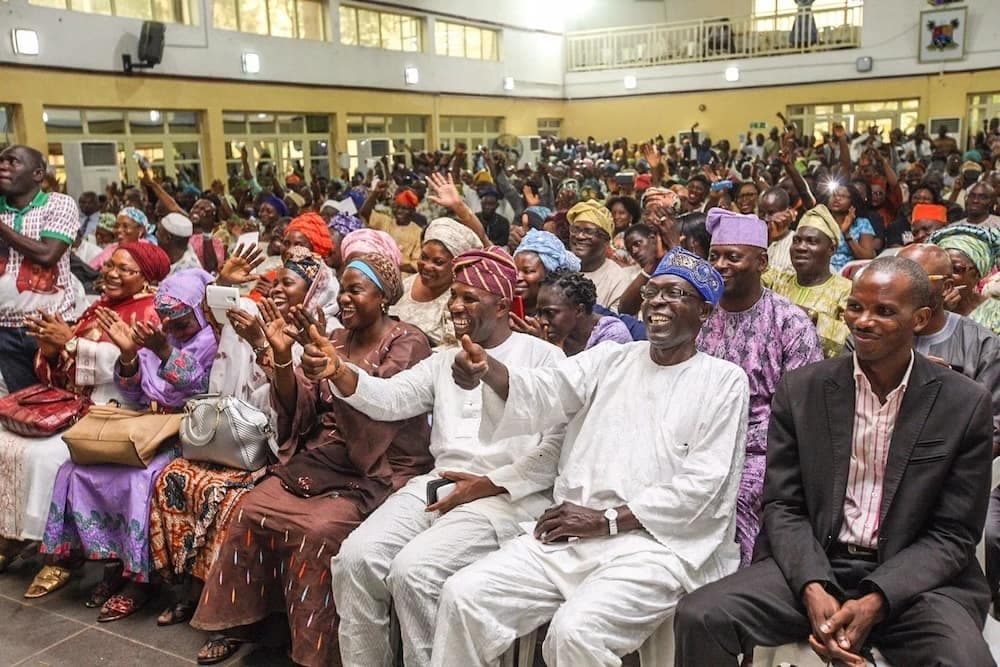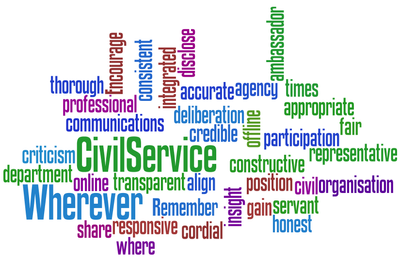Written by: Tunji Olaopa (Published in: See Source)
THE title of this piece happens to be the title of my forthcoming publication, previewed in this piece. The publication is a synthesis of the outputs of my research in the last 20 years and therefore presents my ideas and proposals on what needs to be done to get the civil service capability ready to competently and effectively backstop the transformation of the national economy. The ideas and proposals are also targeting the transformation of the civil service as an institution so it could assume a world-class status. The book, with a befitting foreward written by the elder statesman, Dr. Christopher Kolade, is being published by Bookcraft.
This 18-chapter book projects an optimistic and demonstrable theoretical and practical trajectory of how the past of this institution can become a foothold of strength from which to launch the achievements of the next centenary. The Nigerian Civil Service of the Future is meant to serve as a reform blueprint for jump starting the debate about institutional renewal and democratic consolidation.
More than ever before, the Nigerian civil service must prepare for its own future. And that future is what we make of it. It would consist of the optimism with which we prepare, the alacrity with which we redouble our efforts, the foresight we bring into our prognosis, the determination with which we rethink our administrative and historical dynamics, and the boldness of our decisions.
The basic objective of The Nigerian Civil Service of the Future is to serve as a reform blueprint that supports the intention to transform the Nigerian civil service into a world-class institution. It attempts this through an outline, in 18 chapters, of the historical and administrative issues and problems, which attended the establishment of this institution, the present logjam, which has inhibited its capability readiness and the future prospect the service faces. There is therefore a deft blend of the empirical and the prescriptive arising from an insiders perception of how the civil service has worked over time and how we can best move it beyond its present predicament. If a metaphor is permitted, then we can say that the book is an extended manual for jumpstarting the stalled engine of the Nigeria civil service.
The book takes history serious as a veritable framework from which to come to term with those significant issues, which have been unwittingly left behind in the rush for progress. As a first step, therefore, the book takes a broad and panoramic view of administrative history in Nigeria from 1954 till date. This view refreshes our memory as to those issues, which have resisted the best of efforts in administrative reforms. These issues include the pay and compensation structure of the service, industrial relations dynamics, the design and execution of reforms, bureaucratic corruption, human resource management, the operational logic of the Federal Civil Service Commission, as well as the core institutional framework of the civil service. The combustible mix of these issues in the present administrative set up, the book argues, raises the spectre of a productivity challenge around which economic competitiveness can be enhanced.
In a deep sense, therefore, we can say that The Nigerian Civil Service of the Future is a call for an institutional renewal, guarded by a specific reform model, around which Nigeria can achieve a new productivity paradigm. Such a reform model is tasked with the responsibility of reconnecting the civil service system with a productivity trajectory that will raise the bar for the Nigerian development profile.
Apart from the historical excursus, the book then outlines a systematic reform dynamics whose eventual objective is to surmount the challenge of capacitating the institution for its service delivery task. We argued that reform requires a critical mass of individuals, those I have called the new professionals, who will not only be public servants in the real sense of service, but will also be willing and capacitated enough to take on the daunting task from a sense of patriotism and professionalism. These new professional public servants would then be required to facilitate the basics of reform-craft. The overall framework for directing the reform of the Nigerian civil service has already been provided by the National Strategy for Public Service Reform (NSPSR). This document constitutes an irreducible blueprint that articulates the trajectory of reform management in Nigeria.
However, translating its objectives and goals to reality requires some first level conditions which, in The Nigerian Civil Service of the Future, we call getting the basics right. These basics are woven around what I called a five-point agenda, a personal administrative vision of how reformers can overcome the complexity of administrative reform. The strategy for undermining this complexity is to begin reforms at the level of the operational dynamics and institutional arrangement of the Ministries, Departments and Agencies (MDAs), which form the specific administrative manifestations of what we need to reform. It is these MDAs whose operational and institutional frameworks we need to catalyse to achieve a balanced organisational structure that deliver the good as efficiently and effectively as possible.
And the five-point agenda for rethinking the reform of the MDAs include: (a) creating a new generation of public managers committed to the agenda of a new productivity paradigm; (b) reengineering the MDAs management system into performance-oriented, technology-enabled and social compact or accountable business model; (c) strengthening and leveraging Public-Private Partnership to facilitate and deepen effective and efficient service delivery; (d) reorienting the public service into a rebranded profession; and (e) instituting a leadership development scheme that would enable permanent secretaries to raise and answer hard questions about reform and policy designs and programmes implementation. The essence of the five-point agenda underlying the forthcoming book is to provide a strategic thrust for re-capacitating the performance management dynamics and business model of the MDAs for more productivity outputs.Read More




